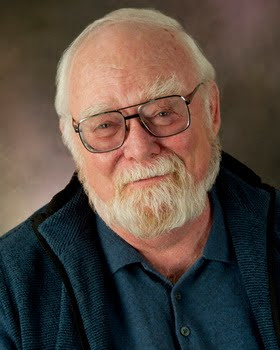 William Sharp, who served SUNY Cortland for 16 years as a senior administrator and teacher, will retire on Dec. 31, 2010. He has been designated professor emeritus of history.
William Sharp, who served SUNY Cortland for 16 years as a senior administrator and teacher, will retire on Dec. 31, 2010. He has been designated professor emeritus of history.
Sharp joined the College in 1994 as a professor of history and provost and vice president for academic affairs. He was provost for seven years before returning to the classroom in the College’s History Department.
As provost, he oversaw all academic programs and faculty personnel matters. He played a key role as the College underwent its 10-year review by the Middle States Commission on Higher Education. During his term as second-in-command, he was instrumental in capturing a $1.75 million, five-year grant from the U.S. Department of Education for the project aimed at strengthening the School of Arts and Sciences programs. He shepherded through to approval many new and revised degree programs.
Prior to his employment at SUNY Cortland, Sharp was dean of Temple University’s Japan Campus in Tokyo, with its 2,250 students and 160 faculty members from 1988-94. He opened the campus and served as its first director from 1982-85. Between those two appointments, he directed Temple’s Institute for Languages and International Studies in Philadelphia and also served as associate dean in the College of Arts and Sciences.
Sharp became part of Temple’s History Department faculty in 1969, teaching courses in Latin American history and helped develop curricula in Latin American Studies, Black History, and Asian Studies. Sharp also directed the Honors Program for the College of Arts and Sciences.
Before joining Temple, he was a visiting associate professor of history at Bryn Mawr College in Pennsylvania, and was an instructor of English as a Foreign Language at Centro Colombo/Americano in Bogota, Columbia.
A native of Minneapolis, Minn., Sharp earned a bachelor’s degree in American history from Stanford University and served two years in Colombia with the Peace Corps.
He received master’s and doctoral degrees in Latin American history from the University of North Carolina at Chapel Hill. While studying for a doctorate, he minored in American history and political science.
A past president of the Northeast Region National Collegiate Honors Council, he was chair of the American Association of Colleges and Universities in Japan for many years, often representing American universities in Japan’s educational, business and governmental circles. He was a past president of the Temple University Chapter of the American Association of University Professors.
A past member of Rotary International, Sharp served on the boards of Cortland Repertory Theater and the Cortland Country Club as vice president and, until recently, as chair of the Cortland/Tompkins County Habitat for Humanity.
He and his wife, Elizabeth Sharp, live in Cortland and plan to remain actively involved in the local community, where Liz served as president of the YWCA Board of Directors and on the board of the Lime Hollow Center for Environment and Culture. They have three grown children, Michael Sharp, Christopher Sharp and Heather Sharp- and four grand-children.
